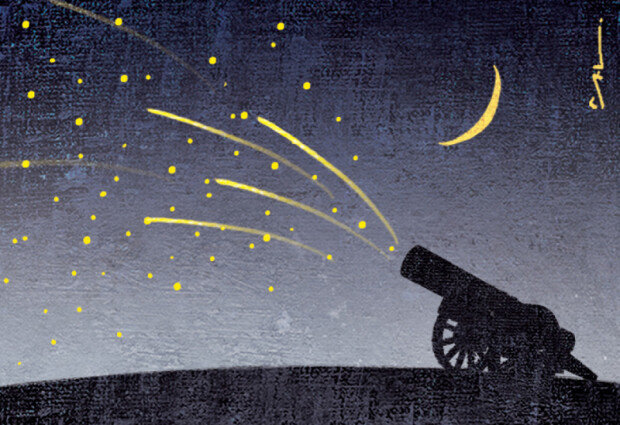If all the gun shells of the world turn into stars
If all the gun shells of the world turn into stars
Posted June. 04, 2022 08:55,
Updated June. 04, 2022 08:55

China's “Shan hai jing (Classic of Mountains and Seas)” is full of imaginary creatures. Among them, there is an animal called 'Fúxī'. It looks like a rooster and has a human-like face, and when it shows up, a war breaks out. Of course, there is no such thing as Fúxī in this world. However, there is such a being as Fúxī, and when its shape turns into a human, it goes to school and starts shooting at children, and when it turns into a leader, it mobilizes an army of fighters, and guns and missiles are launched.
Albeit we live in the age of civilization, a world of barbarism still exists. We are taught in our entire life that there is nothing more precious than life, but sometimes that is not the case at all. I came across works by poet Lee Se-ryong when I was perplexed by this contradiction. Although he passed away a few years ago, thus his poems are not recently-authored, this particular piece of poem fascinates us starting with the very title.
What would happen if all the gun shells of the world became stars? It is as if the poet had just known what we long for at this very moment. After reading what the poem is called, we find ourselves pressing the poet. We desperately want him to utter the message of dream where lethal weapons become stars that are full of hope. Tracking down the source of the poet's imagination and hope is eventually met with overjoy. Knowing that reality is the opposite, envisaging what cannot happen in reality is intoxicating. And I want to see that 100, 1 million, and 10 million people reading and feeling just as elated I was reading the poem. This poem gives me both highs and lows at the same.







